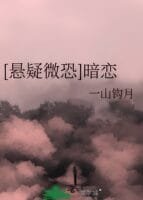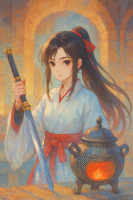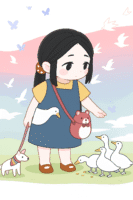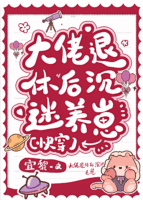I Have A Store C197
by MarineTLChapter 197: The Threshing Machine
“Sixteenth Brother, what on earth have you built?”
The village carpenter was a bit puzzled. A few days ago, Zhou Yimin had asked him to help build this contraption—it didn’t look like a cabinet, nor did it seem complete. There were still parts missing that needed to be installed, so he couldn’t figure out what it was for.
“This is a threshing machine,” Zhou Yimin told him.
There were still some other components that he had asked the steel factory to help make.
In truth, it was a wheat thresher.
Threshers were nothing new overseas. As early as the 1840s, the Scots had invented the earliest versions—those machines used a series of flail mechanisms powered by water, and their efficiency was equivalent to that of thirty laborers.
Starting in the 1840s, British threshers enjoyed a century of success. At the peak of demand, threshers made in Britain were a popular choice in many countries.
Nowadays, combine harvesters had even appeared abroad.
But in the country, wheat harvesting was still primitive—especially in rural areas, where labor-intensive methods remained the norm.
Farmers would cut the wheat with sickles, haul it back to the threshing grounds, spread it out, then rely on livestock to pull heavy stone rollers over it. It would take an entire day to thresh one batch, and under good weather, a team might take about ten days to finish the work.
The old village secretary was in such a hurry to buy donkeys precisely for this wheat harvest. He believed that with more donkeys, threshing would go faster.
“Threshing machine?” The carpenter was stunned.
No machinery had ever been used in Zhoujiazhuang for harvesting before, so it was naturally unfamiliar.
“Yeah! Just feed the cut wheat into it, and it’ll separate the grain from the stalks. No need to use stone rollers. It’s more convenient, faster, and saves time and labor,” Zhou Yimin explained.
The carpenter stared at the big contraption in front of him in disbelief.
This thing could thresh wheat? Without animals dragging rollers back and forth?
“It’s still missing something, right?” he asked again.
Zhou Yimin nodded. “Just a key component. I’ll bring it over tomorrow and install it. Then it’ll be ready.”
The wheat thresher was actually quite similar to a rice thresher—just slightly different in design.
The one in front of them didn’t use electricity or fuel; it was powered by manpower alone. But even with just manual operation, its speed and effectiveness far surpassed stone roller methods.
It wouldn’t be an exaggeration to call the use of threshers an agricultural revolution. It greatly reduced the need for labor and improved efficiency.
It wasn’t long before everyone in the village knew what the carpenter had been building these past few days—a threshing machine. Curious villagers gathered to watch.
Even the old village secretary and the brigade leader couldn’t resist joining the crowd.
“How does it thresh the wheat? I can’t quite make sense of it.”
The old village secretary shot him a glance and said, “It’s perfectly normal you don’t get it.”
The crowd erupted in laughter.
The village’s famously “smart guy” really didn’t need to understand it.
The carpenter explained, “It’s not all assembled yet! Yimin said the rest of the parts are still at the steel factory. Once it’s all installed, you’ll get to see it in action.”
To be honest, he was excited too.
After all, he’d helped build the thing.
If it actually worked efficiently, he’d gain a bit of recognition himself—which made the idea thrilling.
“Secretary, when are we slaughtering the pig?” someone piped up, clearly thinking about the meat.
As was tradition, a pig had to be slaughtered before the harvest to give everyone a good meal.
“The morning after tomorrow. Get up early.”
The village had a total of ten pigs, which had only recently begun to fatten up a bit. Before that, they’d been living off pig grass—how could they get fat on that? But there was no other option. When people didn’t have enough to eat, who had the luxury of feeding pigs properly?
Under the planned economy, privately selling pigs was not allowed. All pigs had to be turned over to the state and redistributed by the government.
As a result, villagers weren’t all that motivated to raise pigs.
There were even designated “quota pigs,” and if a pig was too skinny, people would be criticized. The pigs had to weigh at least 90 jin.
Of Zhoujiazhuang’s ten pigs, eight had to be handed over to the state.
Once the old village secretary made his announcement, some villagers cheered.
At the thought of slaughtering a pig and eating meat, a few people couldn’t help but start drooling.
The next day, Zhou Yimin brought back the key component for the thresher. With him was a leader from the steel factory—Director Ding.
The steel factory had learned that Zhou Yimin was building something again and took it seriously.
Even though Zhou Yimin told them it was just a wheat thresher, and nothing new since it had long existed abroad and couldn’t be exported, the leaders quickly realized how important such a machine could be domestically. They wanted to understand its performance.
“Director Ding, the crops over there are mostly procured by the steel factory,” Zhou Yimin said, pointing to the riverbed area, which was covered in plastic sheeting and very conspicuous.
“Good, very good!” Director Ding said cheerfully.
As the logistics director, he naturally hoped for more stable and diverse food supply channels!
Partnering with Zhoujiazhuang was undoubtedly a smart move.
“Tell the villagers to grow more. The steel factory can consume it—we won’t have any problem,” he said.
Then, his gaze shifted toward the wheat fields.
What a pity! All that wheat had to be turned in to the state. Even the steel factory couldn’t just buy it directly from Zhoujiazhuang.
Zhou Yimin installed the parts from the steel factory, and soon they had assembled a classic manual threshing machine.
They built a total of three of them.
“This is it?” Director Ding asked.
Though he hadn’t used one before, he’d worked in production and had a farming background himself. It was only after marrying into a well-connected family post-PRC founding that he secured his current position.
“You’ll see once we test it,” Zhou Yimin said.
“Quick, go cut some wheat!” Director Ding shouted.
Someone ran toward the field. Everyone was curious about how this “machine” would do the threshing.
Meanwhile, villagers were sharpening their sickles, preparing for the “first cut.”
They used greenstone for sharpening—the stone’s smooth surface gave blades a better edge and toughness.
The old village secretary gave the order for the harvest to begin today. Officials from the commune had come to inspect the wheat and, seeing it was ready, immediately ordered Zhoujiazhuang to start reaping.
They didn’t want to wait even a moment.
What the villagers didn’t know was that the country was facing a serious food shortage. They had to “rush the harvest.” Once the wheat was ripe, it had to be stored as soon as possible to help ease the crisis.
Even schools had started giving time off.
Teachers brought their students to the wheat fields to gather leftover ears of grain. That was about the extent of what kids could help with.
Wheat was the earliest-ripening crop and considered a fine grain, so it was especially treasured. Every single grain had to be brought into storage—not even one ear could be wasted.
“Start cutting!” the old village secretary shouted.
Though he was getting on in years, he still led by example. Standing at the front, he gathered wheat in his left hand, sickle in his right, and with a swift motion, cut and raised a bundle of wheat high for everyone to see, like hoisting a flag.
The others quickly followed suit.
(End of Chapter)


![Good Baby [Quick Transmigration] Cover](https://marinetl.xyz/wp-content/uploads/2025/01/Picsart_25-04-16_22-55-55-418-133x200.jpg)







0 Comments